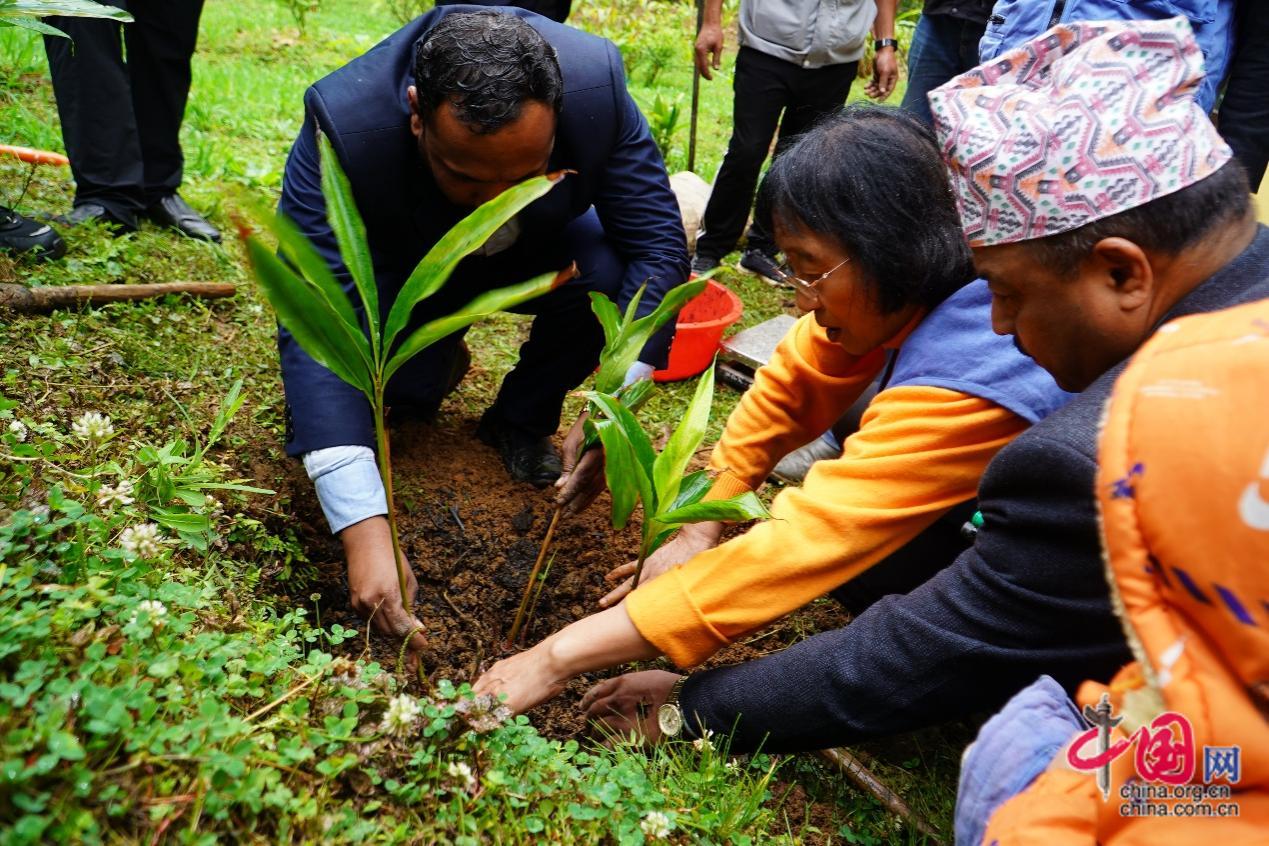China's GIES Technology Boosts FAO's "One Country One Priority Product" Project in Nepal
 0 Comment(s)
0 Comment(s) Print
Print E-mail China.org.cn, May 09, 2025
E-mail China.org.cn, May 09, 2025
In April, the Food and Agriculture Organization of the United Nations (FAO)’s “One Country One Priority Product” (OCOP) Nepal “Large Cardamom” project was officially launched at the FAO Nepal Country Office in Kathmandu. This project was supported by the Geographical Indications Environment & Sustainability (GIES) technology, which was developed by the Institute of Geographic Sciences and Natural Resources Research (IGSNRR) of the Chinese Academy of Sciences (CAS).
The Nepal “Large Cardamom” GIES case was an international practice following the February 2024 Memorandum of Understanding between IGSNRR and FAO on “GIES Methodology and Technical Support” for the OCOP initiative. Leveraging GIES big data, Internet of Thing (IoT), Artificial Intelligence (AI) technologies and standardized management, the project aims to promote knowledge dissemination, intellectual property protection, and traceability of the ecological environment for Nepal’s premium large cardamom. This helps enhance the large cardamom’s brand value, protects the local ecosystem, and drive local economic growth and sustainable development.

The project team conducts training for large cardamom cultivation experts and farmers in Ilam District. (Photo by Wang Shenglin)
The project has received substantial backing from FAO’s Rome Headquarters, the Regional Office for Asia and the Pacific, FAO Nepal Country Office, Nepal’s Ministry of Agriculture and Livestock Development, as well as the local governments. The collaborative IGSNRR-FAO project team has conducted in-depth sample collection of the large cardamom ecosystem and provided training sessions for local planting experts and farmers.
Li Xuan, manager of the FAO’s Regional Office for Asia and the Pacific, pointed out that the GIES technology integrates enterprises, universities, research institutions, government agencies, academic groups, public service organizations, and science communication across the entire value chain from production to consumption. This creates a robust, science-based traceability system, providing critical technical support for the OCOP project.
The FAO Representative for Bhutan and FAO Nepal Ken Shimizu remarked that the application of China’s GIES technology in the OCOP cases of Nepal’s large cardamom and Bhutan’s quinoa will strengthen the two countries’ capacity building, improve their modern agricultural technologies and production, and increase farmers’ incomes, enhance food security and sustainable agricultural development.
Wang Shenglin, deputy director general of IGSNRR, emphasized that the launch of this project, which coincides with the 70th anniversary of China-Nepal diplomatic relations and the 80th anniversary of the FAO, is a significant milestone in the global promotion of Chinese technology and standards. It also underscores IGSNRR’s dedication to FAO’s “Four Betters” goals and China-Nepal cooperation. He added that IGSNRR aims to establish the large cardamom case as a model, incubating a cluster of GIES cases in Nepal and promoting them globally within the OCOP framework.
Wang Xin, Chargé d’Affaires of the Chinese Embassy in Nepal, commended the GIES-supported large cardamom case as an innovative model for China’s support of Nepal’s sustainable agriculture. He expressed his hope that the team from the CAS would promote and expand its technical support in Nepal.

The project team visits the Chinese Embassy in Nepal. (Photo by Suman Giri)


